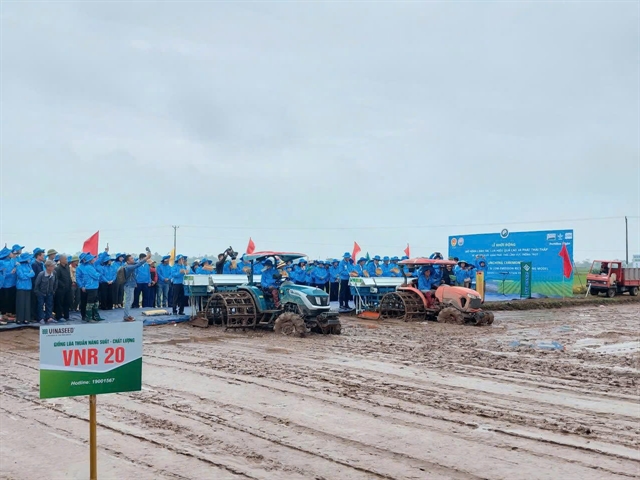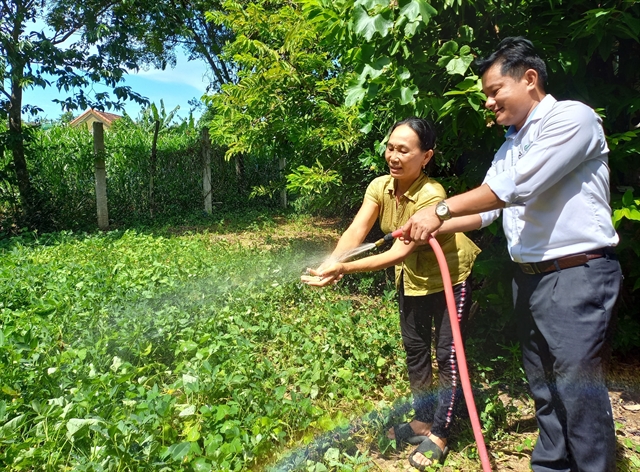 Environment
Environment

 |
| A woman in Hoa Thủy Commune of central Quảng Bình Province use clean water after a water supply station was put into use in the commune in August. — VNA/VNS Photo |
HÀ NỘI — The Ministry of Agriculture and Rural Development will continue prioritising the supply of clean water for disadvantaged, mountainous and remote localities and areas that are usually affected by natural disasters, according to deputy minister Trần Thành Nam.
The ministry will build models of water storage to cope with climate change in coastal and Mekong Delta regions, he said at a conference held on Thursday in Hà Nội to implement a programme on enhancing environmental protection, food safety and hygiene, and supply of safe water for rural areas during the 2021-25 period and a programme on digital transformation in building new-style rural areas.
The ministry has coordinated with ministries, agencies and localities to implement on a trial basis some safe water supply projects in rural areas which have yielded positive results, Nam said. These models will be expanded to other localities in the future.
Regarding food safety and hygiene, safe food markets have been built in some localities. Deputy Minister Nam asked provinces to study, assess and build this model in rural areas.
In order to ensure effective implementation of the programme on enhancing environmental protection, food safety and hygiene, and supply of safe water for rural areas, Nam urged the people's committees of provinces and cities to build concrete implementation plans and prioritise the allocation of funds from the State budget to implement the programme.
The Prime Minister approved the programme on August 2, 2022. It aims to improve the living quality of rural people, according to Ngô Trường Sơn, chief of the Central Coordinating Office for New Rural Development.
The PM's decision to approve the programme set key tasks for ministries, agencies and localities to implement, relating to the supply of clean water for rural areas, dealing with household solid waste, household wastewater, agricultural waste and by-products, and plant protection chemicals, environmental protection at craft villages, and sanitation and food safety and hygiene.
The decision also put forward some solutions, including strengthening information dissemination, improving capacity, building and completing mechanisms and policies, mobilising resources, and promoting the role of businesses and local community and socio-political organisations.
At the conference, participants contributed opinions to perfect the plan to implement the programme. They recommended the participation of people from all walks of life, expanding the clean water supply network and sharing experience in building and maintaining rural sanitation and environmental protection.
They also discussed challenges in implementing the programme. Many businesses are not interested in investing in clean water supply. Violations of food safety regulations due to small-scale production and trade, and environmental pollution remain a serious problem in rural areas. In addition, climate change has had negative impacts on the supply of water and the environment.
Nguyễn Đình Trọng, CEO of T-Tech Vietnam Corporation, said the treatment of waste and environmental pollution requires the participation of the whole society, from the central to the local level and from the rich to the poor.
To improve waste treatment and environmental protection in rural areas, he proposed localities have proper environmental planning; apply technology in collecting, transporting and treating waste; and improve investment in this field. Each province needs to have at least one waste treatment complex. — VNS